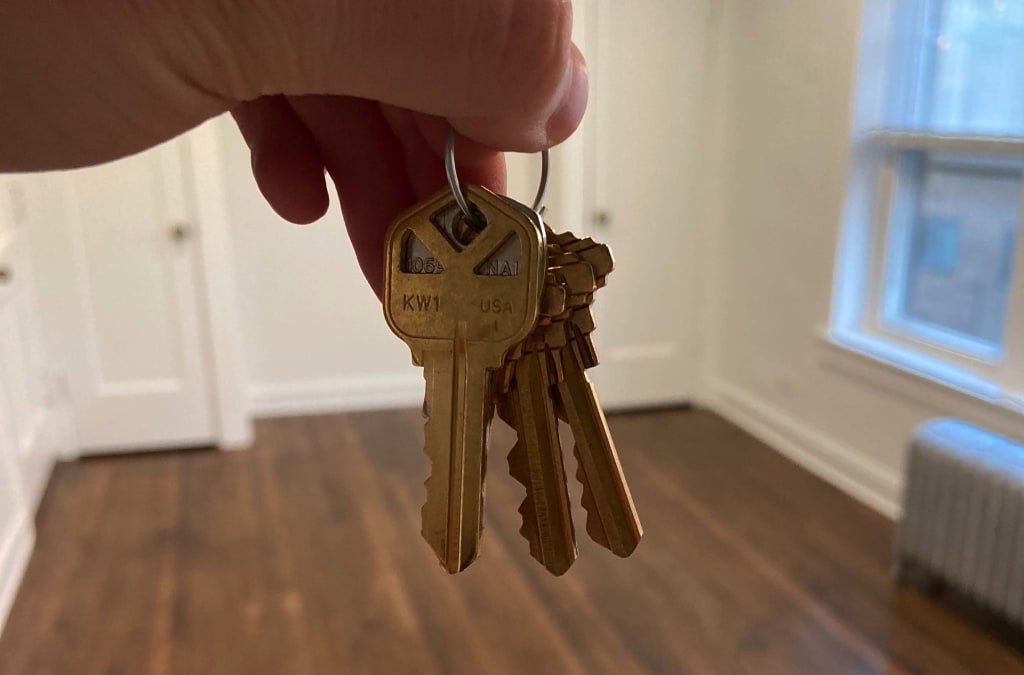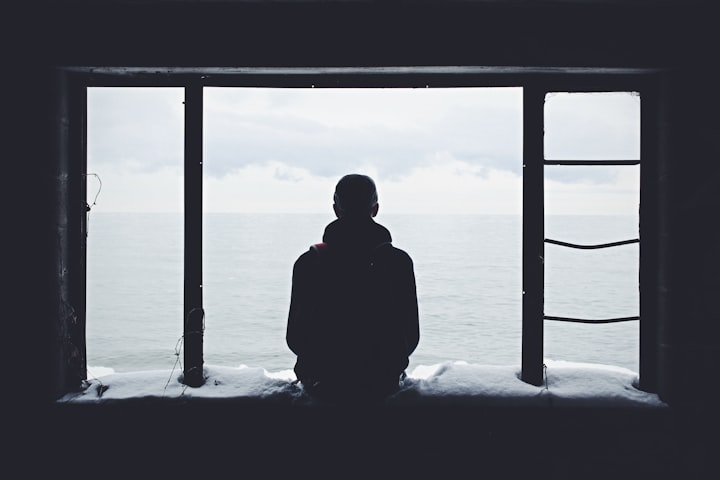Thoughts On Mental Health in a Studio Apartment
The 4 best parts of living alone during a pandemic

I thought I’d be living in LA by now.
Originally from NH, I moved to Brooklyn in 2016 and to Chicago a year later, figuring that getting halfway across the country was an important and temporary step on my way to Hollywood. But then the pandemic hit, and the idea of relocating to an unfamiliar city and finding a brand new job felt a lot more terrifying than usual, and I decided I was better off staying put for now.
With the Big Move out of the question, my plans shifted instead to a Small Move, and after having lived with at least one other person for the first 29 years of my life, I found myself a studio apartment and went completely solo. The transition was surreal and exciting and scary and I think covered most of the spectrum of human emotion, and after making it through the first six months of my lease (and the first twelve months of COVID-19), I have a lot of thoughts about how my new living situation has impacted my experience of the pandemic.
One: I have unlimited privacy.
I started weekly teletherapy sessions right around when the virus hit, and though my bedroom was in the back of the apartment, it was also right off the kitchen, and there were times when all three of my roommates would be cooking and talking and laughing as I sat at my desk crying about childhood trauma. I already have a whole Thing about making myself small —not making too much noise, not taking up too much space, and generally minimizing my thoughts and emotions for the comfort of others—so to feel compelled to keep my voice down in my own bedroom was extremely counterproductive. After the sessions, if I needed to get food or use the bathroom, I had to either wait until I calmed down or try to breeze through the apartment with red eyes.
Now I can cry before, during, and after therapy and still make myself food, I can play ukulele and guitar at all hours of the day and night, I can listen to Taylor Swift on repeat, I can chat with family and friends at a normal volume, and I can freely write and journal without worrying about anything or anyone in my physical environment. Of course, pandemic loneliness is very real and very brutal, and I got hit hard over the holidays when I celebrated both Christmas and New Year’s by myself, but on the average day, I find myself fully enjoying the solitude. (More on that later.)
Two: I don’t need permission.
When quarantine first started and we were bound by an actual formal stay-at-home order, I turned it into a stay-in-room thing and spent months simply looking around, taking everything in, and experimenting with random ideas for how all of my furniture and decor could be best arranged. The process was creative and cathartic, but still very limited when confined to a single room; so when I moved to my very own shoebox-shaped studio apartment, I had myself one of those Lion King moments: “Everything the light touches is your kingdom.”
I arranged and rearranged and changed my mind as many damn times as I wanted, for every single square inch of the space, from the bed corner to the desk corner to the storage wall to the kitchen wall to the living area. I also upgraded my couch and my desk, two important items that I use constantly, to better suit my needs and my preferences and absolutely no one else’s.
The shelves, the walls, the fridge, the bathroom cabinet, this whole room… it’s all mine to fill however I want, and that vein of creative freedom has been more liberating than I ever thought possible.
Three: Stress-cleaning vs. being a slob.
I hate washing dishes. I typically set all my used bowls and dishes and tupperware in the sink and let them sit throughout the week until Saturday morning (which has been my preferred cleaning time for years), a process that didn’t used to be possible in my previous apartment.
Chores are a lot more complicated when you’re sharing them with three other people, and when your mess is combined with their mess, and when you’re an anxious person who’s terrified of being perceived as The Roommate Who Never Cleans. I was constantly torn between “I’m sad and exhausted and standing at the sink for twenty minutes sounds excruciating” and “the longer I wait the greater the chances are of one of my roommates doing it and then I’ll feel guilty for not doing it,” and then somehow I would also find a way to worry about my cleaning being perceived as passive aggressive or petty in some way. Have I mentioned my anxiety yet?
Once I moved I took on all of the chores but shedded my audience, and having that full discretion over the cleaning process has been one of the best parts of living alone. If I’m too tired to clean, I don’t, and I can live on in increasing chaos until I personally decide I’m ready to start fresh. “Ready” can either mean waiting for Saturday mornings when I’m at peak energy and motivation, or it can mean stress-cleaning (and/or stress-reorganizing, and/or stress-fully-rearranging) after a bad day at work, a terrifying COVID update, or a political insurrection. The point is, I can go either way depending on which system suits my mental health better during any given week.
Four: As an essential worker, I need peace and quiet.
I’ve been working full-time onsite for most of the pandemic, which means I’m around up to a dozen people for nine hours each day, five days per week, during a global event that has everyone rightly frustrated and scared. As someone who’s always had their social limits and prefers to be more internal with their energy, my home has become the only place where I’m guaranteed to not have to talk to, or “perform” for, anyone. There’s no questions to answer, no behaviors to justify, no small talk to get through before I make it to my bedroom.
When you have roommates, you don’t only have roommates: you also have their friends, their family, and their significant others, and you yourself don’t have much control over who shows up at your front door, how much noise they make, or how long they stay. When you’ve had a long week and are trying to tuck in early on a Friday night but there’s loud music playing in the next room, it’s hard to tell anyone to keep it down just for your sake.
Living alone means I can go to sleep early without being kept awake, I can wake up early without worrying about disturbing anyone else, and I can nap, rest, whatever, whenever I want. It’s a physical escape from the world that allows for further mental and emotional escapes any time my body needs them, which is… often.

I know that not everyone is having an easy time with their lockdowns, especially those who have worked remotely for the past year and don’t have direct human interaction built into their day. All of us function a little differently in solitude and have different social needs depending on the circumstance, our upbringing, and our resources.
While I do get lonely sometimes, I’ve still found that setting myself up to be fully independent and have complete autonomy in my home is the best thing I could’ve done for my mental health. As COVID-19 does its absolute best to make me feel powerless and trapped, I have the space to create my own little pocket of safety, stillness, and solitude.
About the Creator
Kelsey O'Regan (they/them/theirs)
Creator/writer of BIFL: The Series, professional fixator, recovering Online Person.






Comments
There are no comments for this story
Be the first to respond and start the conversation.